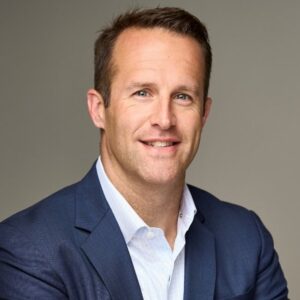Does Guardian own avesis?
Does Guardian own avesis?
Since 1978, we’ve provided vision, dental, and hearing health coverage to millions of Americans. And now, as a wholly owned subsidiary of the Guardian Life Insurance Company of America, we can do that with an even greater focus and commitment than ever before.
What companies does BRK b own?
The company wholly owns GEICO, Duracell, Dairy Queen, BNSF, Lubrizol, Fruit of the Loom, Helzberg Diamonds, Long & Foster, FlightSafety International, Shaw Industries, Pampered Chef, Forest River, and NetJets, and also owns 38.6% of Pilot Flying J; and significant minority holdings in public companies Kraft Heinz …
How much of Apple does Berkshire own?
Two lists of Berkshire’s largest stock holdings Company Ticker Berkshire ownership stake Apple Inc. AAPL, -0.17% 5.41% Bank of America Corp. BAC, -0.78% 12.34% American Express Co. AXP, +0.09% 19.57% Coca-Cola Co. KO, +1.40% 9.26% 20 more rows • Feb 15, 2022
How many subsidiaries does Berkshire Hathaway have?
While it would prove daunting to summarize each of Berkshire’s 80+ subsidiaries in one article, it may help anyone interested in Berkshire Hathaway to understand their largest subsidiaries as well as their largest equity holdings. Mar 10, 2022
How did Warren Buffett get rich?
In 1962, Buffett became a millionaire because of his partnerships, which in January 1962 had an excess of $7,178,500, of which over $1,025,000 belonged to Buffett. He merged these partnerships into one. Buffett invested in and eventually took control of a textile manufacturing firm, Berkshire Hathaway.
Is Penn Mutual captive?
Penn Mutual is a non-captive company, which allows outside agents to offer Penn Mutual’s policies to their clients. Jul 27, 2020
Is Liberty National a captive insurance company?
Captive Versus Independent First, Liberty National is a fantastic company and does serve its clients well. For agents, however, you have to understand that working with Liberty National means being a “captive agent.” A captive agent is an agent who only works with one insurance carrier. Jul 21, 2021
Is Northwestern Mutual captive?
This is a captive company- which means if you ever decide to leave them and move to another firm, or start your own firm, you do not keep any of the commissions you earned. They keep them all. Dec 20, 2010
Why is PPO more expensive?
The additional coverage and flexibility you get from a PPO means that PPO plans will generally cost more than HMO plans. When we think about health plan costs, we usually think about monthly premiums – HMO premiums will typically be lower than PPO premiums.
Why would a person choose a PPO over an HMO?
Advantages of PPO plans A PPO plan can be a better choice compared with an HMO if you need flexibility in which health care providers you see. More flexibility to use providers both in-network and out-of-network. You can usually visit specialists without a referral, including out-of-network specialists. Jul 1, 2019
What is PPO good for?
A PPO is generally a good option if you want more control over your choices and don’t mind paying more for that ability. It would be especially helpful if you travel a lot, since you would not need to see a primary care physician. Oct 1, 2017
How much does a root canal cost?
Expect the cost of a root canal treatment to be about $400. to $600. per front tooth and about $500. to $800. for a molar. The difference is because front teeth usually have only one root canal and molars usually have three or more.
What is the difference between PPO and DMO?
HMO/DMO providers can be expected to perform services for a deeply discounted rate. On the other hand, PPO dentists only receive money from the insurance company if services are rendered.
Is Invisalign covered by Delta Dental?
Delta Dental plans don’t cover at-home clear aligners. Don’t expect to receive assistance with your at-home aligner treatment if you have a Delta plan.
What is a deductible in dental insurance?
A deductible is the amount of money you must pay out-of-pocket for dental care before your plan starts to share those costs. Other costs associated with your plan. Once you meet your dental deductible you and your plan start sharing a percentage of the costs for your dental care.



